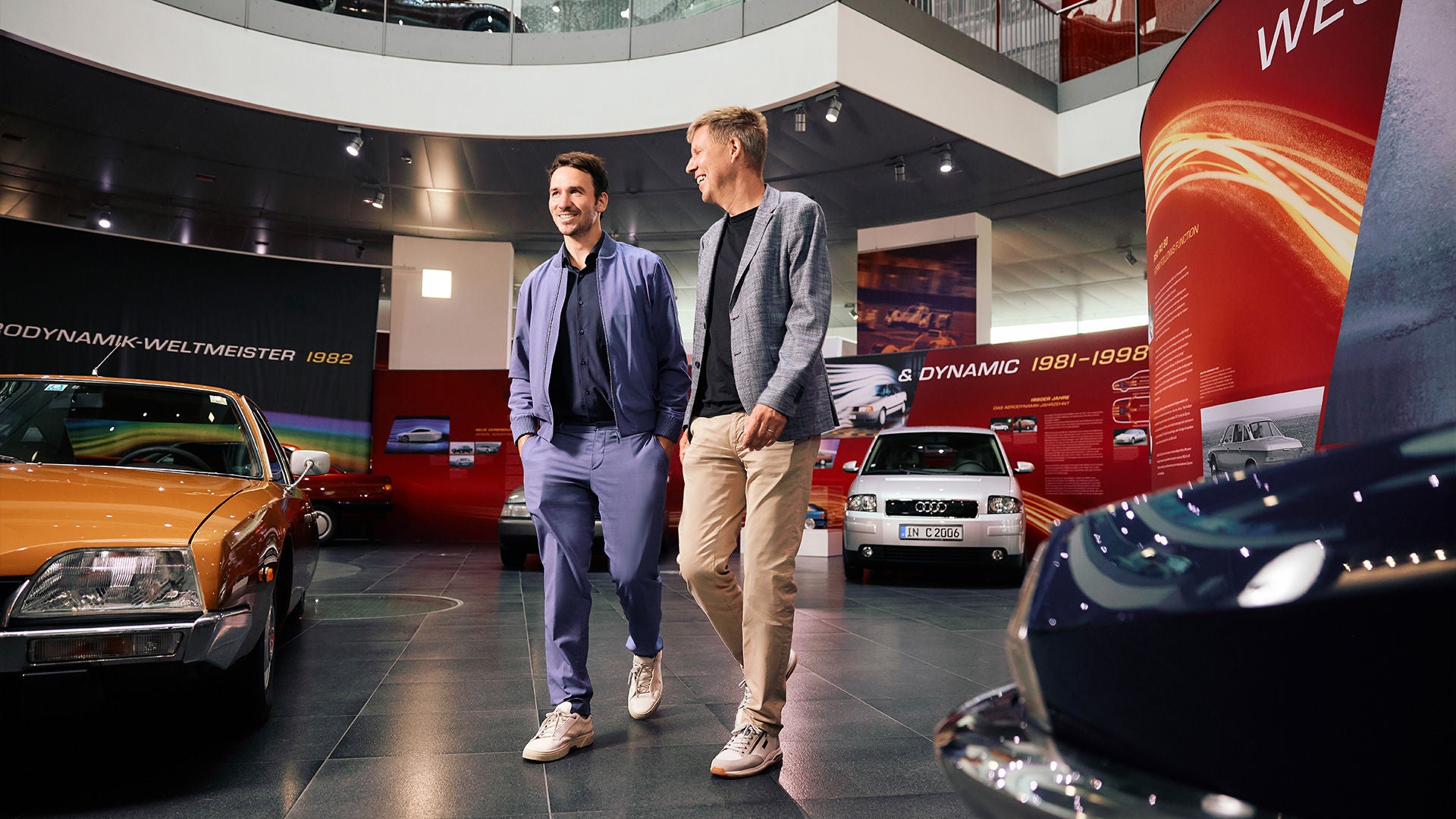Sustainable both then and now: “Audi is following the right path.”
missing translation: fa.article-intro.reading-time – 11/28/2024
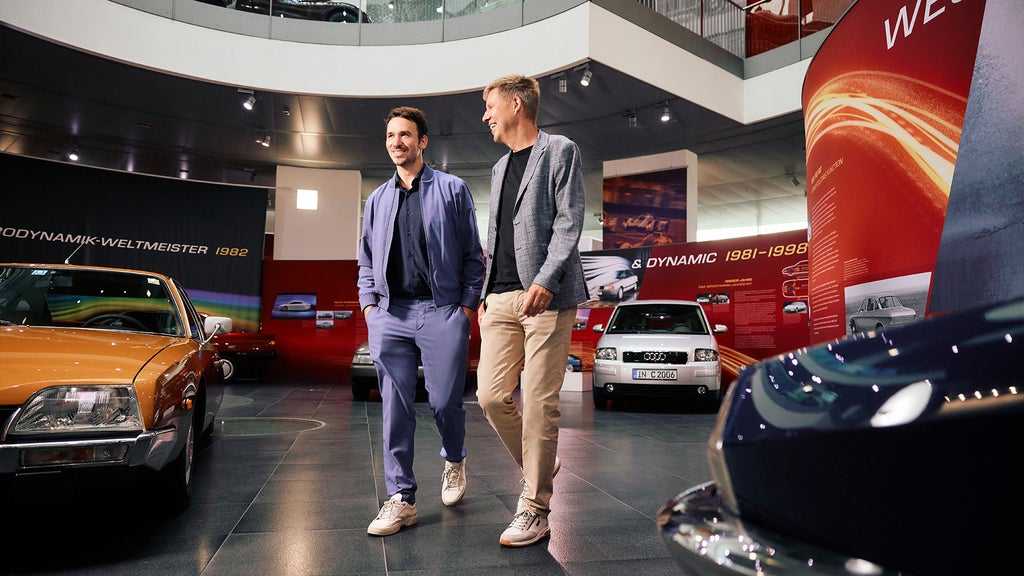
Felix Neureuther and Rüdiger Recknagel talk about their commitment to protecting the environment.
Felix Neureuther and Rüdiger Recknagel talk about their commitment to protecting the environment.
It’s shortly before 5 pm and the last guests are slowly leaving the building; a building whose fully glazed façade is reminiscent of the annual rings on a tree trunk. It symbolizes endurance and change, tradition and progress: the Audi museum mobile in Ingolstadt. This is where Felix Neureuther, Audi brand ambassador and former alpine ski racer, and Rüdiger Recknagel, Head of Environmental Protection Audi Group, are meeting to talk about sustainability.
Felix, Rüdiger, it’s obvious that you’re both passionate about historic Audi models. Do you like driving?
Felix Neureuther: Very much! I have been passionate about cars since I was a child and I can even still recall my grandparents’ old white Audi 100. I still remember the smell of that car – and as a young child I thought it was really cool.
Rüdiger Recknagel: For me, driving a car was and is a special experience. But, of course, driving an Audi in particular. The sensation of being behind the wheel of an Audi is hard to beat. What I like best is how the quattro drive handles in winter conditions. Once you have experienced how it effortlessly tackles icy mountain roads, you’ll never want anything else.
Felix Neureuther: I couldn’t agree more with that. That experience of effortlessly driving up mountain passes in winter, while others have to laboriously put on snow chains, it’s just incredible!
Passing by the Audi 100 C3 (1982) and Audi A6 Avant e-tron concept (2022)*: Felix Neureuther and Rüdiger Recknagel stroll through the aerodynamics exhibition at the Audi museum mobile and finally get into the Audi A2 1.2 TDI (2002), which brings up another memory of the Audi 100 for Felix. With a mischievous grin he recounts:
““When I was 10 years old, I was allowed to steer the Audi 100 while sitting on my grandfather’s lap. It was incredible. An absolute highlight.”
Felix, you now have three children yourself. What role do they play in your commitment to sustainability?
Felix Neureuther: A big role! When you have your own children, it changes your perspective on sustainability significantly. You no longer live just for yourself, but you try to do everything to ensure the well-being of future generations. Having children makes you much more aware of the relevance of sustainability.
Rüdiger Recknagel: I have always been personally and deeply convinced that sustainability is extremely important. It’s exactly the same for Audi. Sustainability is part of our DNA. We only need to look at the vehicle we’re sitting in right now. The Audi A2 was an absolute milestone in aerodynamics. It is the world’s first four-door car, three-liter car and has a drag coefficient* of just 0.25. Back in 2002, when the car was first built, sustainability was not yet a major concern for the general public, but Audi recognized its importance even then.
The fact that Audi focused at such an early stage on drive technologies is also demonstrated by the next vehicle on the tour through the Audi museum mobile: the Audi A4 Avant duo. Built in 1997, it was the first European hybrid small-series vehicle. The battery could be charged really easily using a conventional household power outlet and a speed of up to 80 km/h could be reached using the electric motor only. In addition, Audi included what was even then advanced recuperation technology: kinetic energy – for example, generated by braking – could be converted into electrical energy, which in turn allowed the energy efficiency of the vehicle to be increased and therefore the impact on the environment to be reduced when driving.
In 1997, a hybrid car was a visionary idea – today, electric mobility is a key element of the Audi strategy. Rüdiger, what’s in store for the future?
Rüdiger Recknagel: Our future is electric. This applies both to our products and to our production sites. Already today we are producing fully electric models at practically all Audi sites in Europe. The goal is for all Audi plants globally to produce at least one electric model by the end of the decade.
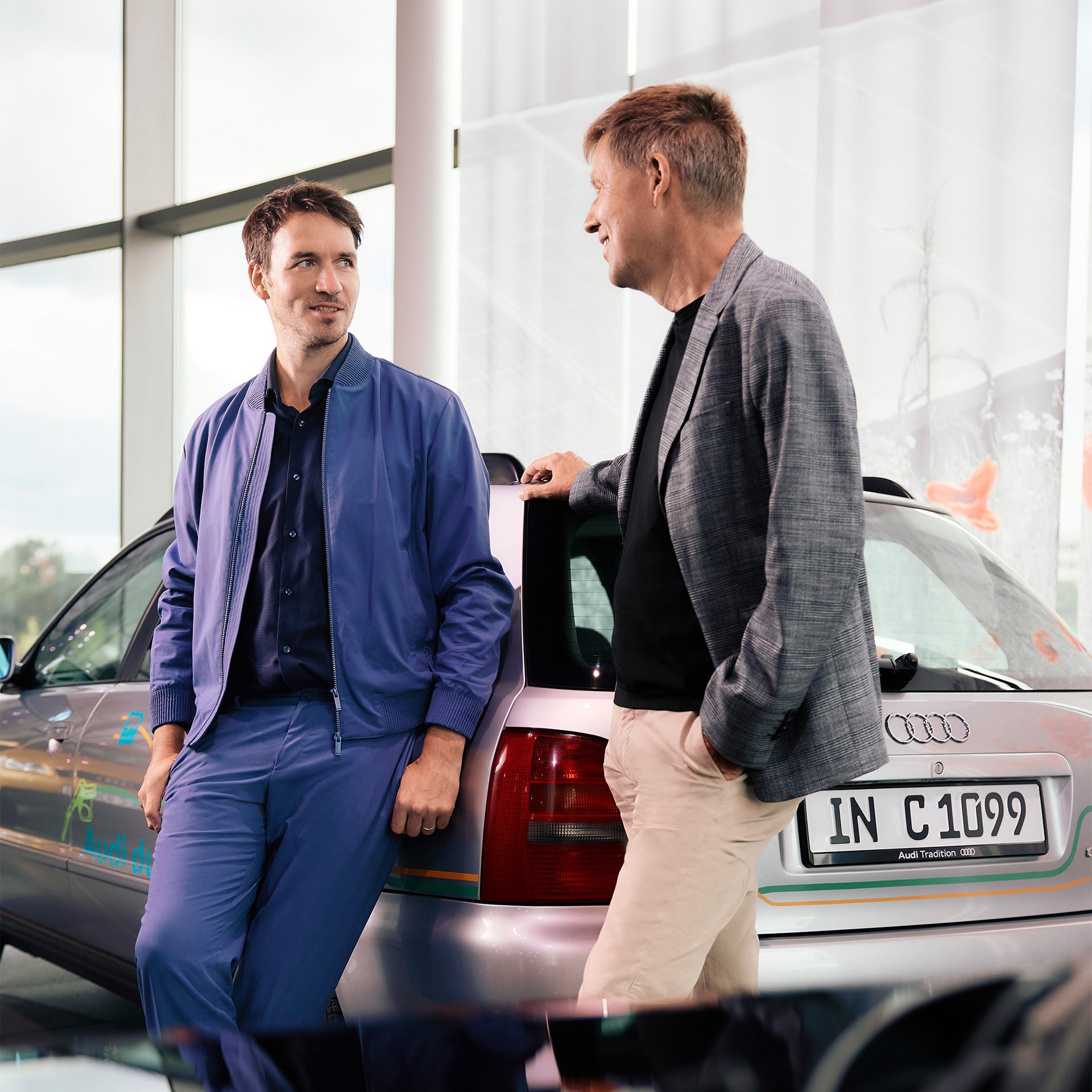
Do you both drive electric cars?
Felix Neureuther: I actually drive both electric and combustion-engined vehicles. Both are great fun, both have their charms. But the Audi SQ6 SUV e-tron* simply makes my extreme athlete’s heart beat faster. Hitting the gas and feeling the enormous acceleration – it’s simply indescribable.
Rüdiger Recknagel: I have only driven electric cars for years now. As Felix already said, the driving pleasure, the acceleration – it’s simply breathtaking. But apart from that, electric mobility is also the most efficient type of drive system. It offers us climate-neutral, individual mobility and driving pleasure at the same time, without having to go without anything.
Felix Neureuther and Rüdiger Recknagel continue walking through the exhibition. The variety of exhibits brings the past to life and, at the same time, offers a glimpse into the future. They are standing in front of the Audi A6 Sportback e-tron* – a beacon in terms of aerodynamics. The optimized aerodynamic drag is one of the factors that make the electric vehicle the most efficient Audi currently available in series production, and with a drag coefficient* of 0.21, a leader in its vehicle segment.
Our electrically powered vehicles illustrate how Audi views sustainable mobility now and in the future. What is Audi already doing to make the design of its vehicles more environmentally friendly?
Rüdiger Recknagel: There are many examples of this, but to stay with the new Audi A6 Sportback e-tron* for now: we think sustainability throughout the entire product life cycle. As early as the development stage, it plays a key role, as we can see from the outstanding aerodynamics of this model. Cutting-edge production technologies ensure high efficiency in production too. The vehicle is produced under net carbon-neutral* conditions at our main plant in Ingolstadt. Recycled materials are used in parts of the interior and exterior, while doors and hoods consist largely of aluminum. This reduces the vehicle weight, which in turn lowers energy consumption while driving.
About the interview partners
More details
Felix Neureuther
Felix Neureuther (born 1984) is a former German alpine ski racer and one of the most successful German athletes in the field of alpine skiing. He took part in three Winter Olympic Games, won five World Championship medals and ended his career in 2019. Today he is a TV expert and sports commentator and since 2020 also a brand ambassador for Audi, where he devotes himself to electric mobility and, since 2021, to sustainability topics as a member of the Audi Environmental Foundation. Privately too, Neureuther is a committed advocate of environmental protection, championing projects in areas such as nature conservation and healthy living.
Rüdiger Recknagel
Rüdiger Recknagel is Head of Environmental Protection for the Audi Group and has been Managing Director of the Audi Environmental Foundation for a number of years. In this role, he is committed to developing and promoting sustainable technologies and environmental protection projects within the company. Under his guidance, Audi launched the Mission:Zero environmental program, which bundles together all measures aimed at reducing CO₂ emissions, conserving resources and protecting biological diversity at the Audi sites and in vehicle production.
And how does Audi plan to ensure sustainable production in the future?
Rüdiger Recknagel: We have a clear strategy for production in the future: the Audi 360factory. We are using new technologies and concepts to ensure production is fully networked. Efficiency and sustainability are always a priority for us.
And our path to achieving this is sustainable in itself. We are building on what already exists and transforming our global sites from the inside out. Moreover, we are consistently reducing the environmental impact of our production plants. Production at all Audi plants will be net carbon neutral by the beginning of 2025. But that’s not all by a long way. For example, we will press ahead with producing our own renewable energy at our sites to an even greater extent in the future.
New technologies, such as machine learning and artificial intelligence, play a key role in meeting all of our goals. We are of course already using these technologies today – at the moment we have more than 100 AI use cases in production and logistics. For example, we are using an image-processing AI solution to check labels on vehicles in assembly. This includes adhesive labels, which show the appropriate type of fuel or the fitting of child seats. A camera records the images, while AI checks in the background whether the label is attached to the correct part and whether it is in the correct position. We hope to use such technologies in the future to make our processes in the plants even more efficient. I see enormous potential here.
Felix, how do you as an Audi brand ambassador view this path to more sustainable production?
Felix Neureuther: In my opinion, Audi is following exactly the right path. This progressive thinking together with commitment to the environment is something that has always fascinated me about Audi. Commitment and hard work are always rewarded. This is something I’ve experienced many times during my sporting career. And that’s exactly why I’m an Audi brand ambassador – this unconditional dedication has drawn me to Audi for many years. Audi is like a family to me.
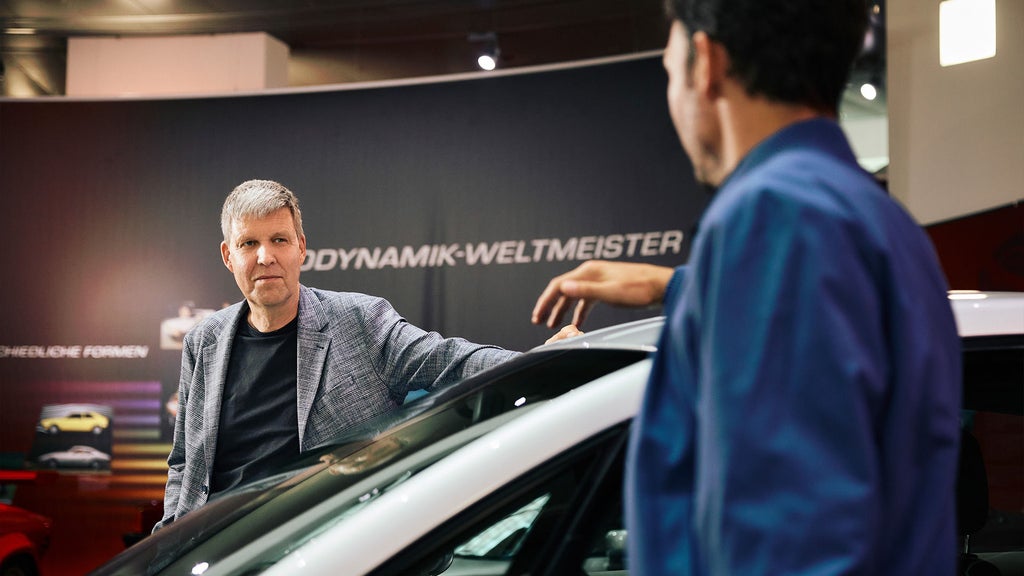
What are you doing within your own families to ensure a more sustainable future?
Felix Neureuther: Living sustainably is the norm for us at home. When we built our home we installed a photovoltaic system, for example, so that we could live relatively self-sufficiently and as sustainably as possible. We also try to teach our children to make sustainable decisions: turning off the tap, switching off the light, separating the trash in the various containers. It’s just about normal, small things. And if everyone makes one small change, we can achieve great things.
Rüdiger Recknagel: I’m totally with Felix on that. It’s about everyone changing what they can within their own sphere of influence – whether privately or professionally. Privately I try every day together with my family to play my part, no matter how big or small. For example, we buy green electricity and, like Felix, I have installed a photovoltaic system with storage.
However, I am particularly proud of our small meadow orchard behind the house, which not only contains old fruit varieties but also promotes biodiversity. And at Audi we know that we can make a big difference if we make our production more sustainable – and this is precisely where the Audi 360factory comes into play again. In addition to decarbonization of production processes, we are also working on circular production, which involves recycling the resources used. One of the goals we have set ourselves is to halve the ecologically weighted water consumption* at our sites by 2035 compared with the 2019 baseline year. We are also committed to preserving biological diversity. The open spaces at our plants are designed in harmony with nature so we can create habitats for numerous species of plants and animals. We have developed our own biodiversity index, which helps us to record progress and specifically encourage biodiversity.
“At Audi, we are working on circular production, which involves recycling the resources used.
Rüdiger Recknagel
Felix Neureuther and Rüdiger Recknagel make their way slowly to the exit of the Audi museum mobile. Felix stops on the way in front of a vehicle that is very special for him and sighs ...
Felix Neureuther: Ah, the Urquattro. For me, this is the mother of all vehicles and therefore a revolution at Audi. Without the Urquattro, Audi would not be what it is today. Am I right, Rüdiger?
Rüdiger Recknagel: Yes, absolutely. This vehicle clearly shows that progress is in the Audi genes – always has been. And it’s precisely this progress and our know-how that will help us to achieve our goals when it comes to sustainability.
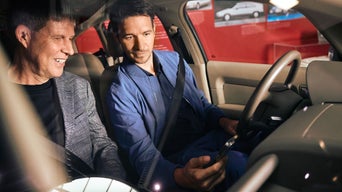
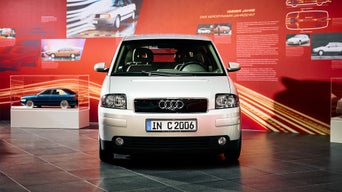
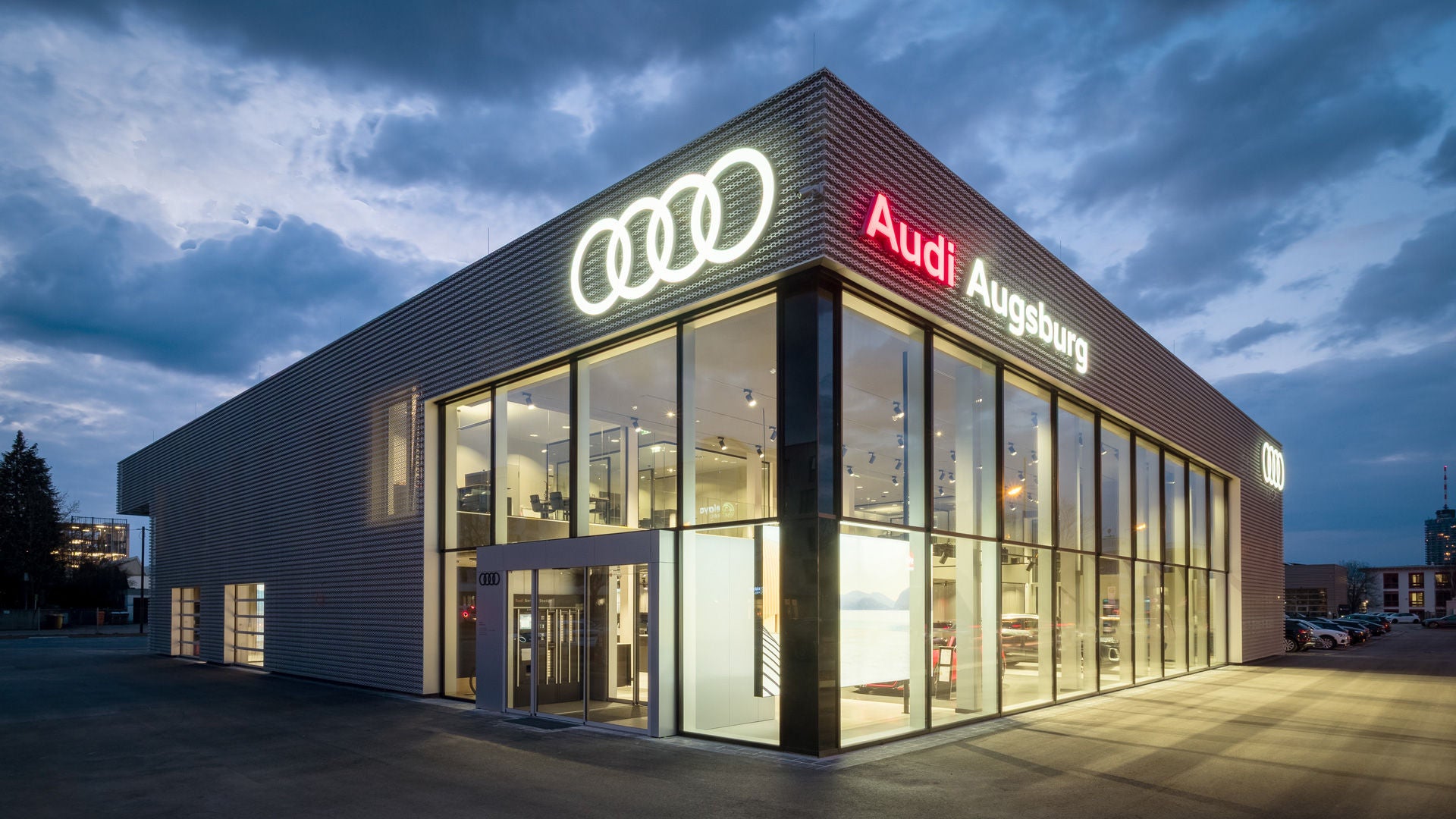
.jpg)
